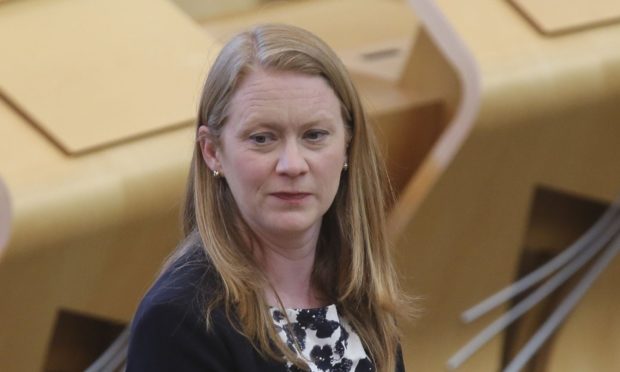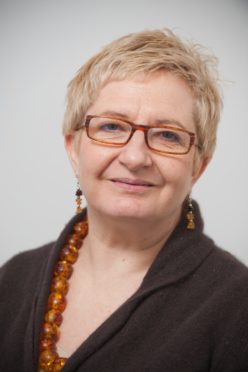Less bureaucracy and more learning – that is the hope of teaching unions after the OECD published its review of the Curriculum for Excellence (CfE).
Unions also hope issues around overworked teachers will finally be addressed as part of reforms to the education system.
The Organisation for Economic Co-operation and Development (OECD) released its findings on Scotland’s education system after it was commissioned by the Scottish Government last year.
As a result of the review, Cabinet Secretary for Education Shirley-Anne Somerville said the Scottish Qualifications Authority (SQA) will be scrapped and replaced.
Parents’ organisation Connect said the decision to scrap the SQA reflected the “total dissatisfaction” with the body’s decision-making this year.
The agency tasked with improving Scotland’s education, Education Scotland, is to be majorly reformed.
The report found that the institutions needed to be simplified, with clear roles established.
It also identified a “disconnect” between the core aims of CfE and Scotland’s qualifications system.
The Educational Institute of Scotland (EIS), the country’s largest teaching union, welcomed the news that the SQA is to be scrapped.
General secretary Larry Flanagan said: “It is essential that any new body is properly configured and is accountable to the profession.
“This must be through a model of governance based on educational, rather than political, considerations, and with a teacher voice at its heart.”
‘Massive assessment overload’
He added: “The report highlights some of the strengths of the Scottish education system, not least being Scotland’s place in the top five nations in the world regarding global competency.
“But it also confirms what the EIS has been saying for a number of years, which is that there is a disconnect between the BGE (Broad General Education 3-15) and the Senior Phase (15-18).
“There is massive assessment overload in the senior phase, which squeezes out the time needed for both depth and breadth of learning – two of CfE’s big ambitions.
“This overload is also the driver of excessive workload, and that has been exposed clearly during the pandemic.”
The comparatively high level of teacher-class contact time was another area highlighted, particularly the need for a reduction in class contact time.
“This is a key priority for the EIS,” said Mr Flanagan.
“EIS lobbying in this area has already had some impact, with the Scottish Government pledging to deliver an early reduction of 1.5 hours per week in teachers’ class contact time to bring Scotland closer to OECD norms.”
‘Bureaucracy bedevils teachers’ lives’
He added: “The report also seems to confirm that the Government’s focus on Standardised National Assessments has been a monumental distraction, with little impact other than adding to the bureaucracy that bedevils teachers’ working lives.”
Meanwhile, the NASUWT teaching union said the OECD’s findings reaffirmed concerns raised by teachers regarding curriculum and assessment.
However, it said there are opportunities to improve on what currently exists, provided the teaching profession is properly involved and consulted.
General secretary Patrick Roach said: “The founding principles of Curriculum for Excellence have been lost amid an over-emphasis on assessment and bureaucracy.
“This is driving up teacher workloads and diverting teachers from focusing on teaching and learning.
“Over-assessment is a particular concern in the senior phase.
“As the OECD has stated, while there is much to be proud of in Scotland’s education system, priority must be given to tackling the deep-seated issues which are undermining the efforts and morale of teachers.
“Providing teachers with adequate dedicated time for curriculum planning would be a step forward in helping to tackle excessive workload, and support efforts to raise educational standards.
“Unnecessary bureaucracy must be stripped back and policy overload must be addressed.”
‘Serious concern among teachers’
He added: “The recent performance of the SQA and Education Scotland has prompted serious concerns among teachers about the regulation of qualifications and curriculum matters.
“The Cabinet Secretary needs to grasp this opportunity to develop a genuinely collegiate approach going forwards, ensuring that the perspective of classroom teachers is integral to future curriculum development and design.
“We look forward to working with the Scottish Government to build on the many strengths which the OECD has rightly identified, and to achieve even more for our children and young people.”
Parents’ organisation Connect also welcomed the OECD report.
Executive director Eileen Prior said: “Parents, young people and those working in Scottish education will recognise much of what the report says.
“There is huge commitment across the country to improving children’s lives through education.
“And there is optimism about Scottish education.
“However, the challenges are also plain to see.
“The announcement that the SQA is to be replaced is a drastic solution.
“But it reflects the total dissatisfaction with the SQA’s decision-making this year, which prioritised ‘the system’ over young people’s needs and experiences.
“At Connect, we very much look forward to working for improvements to Scotland’s education system, for the benefit of our children and young people.”


